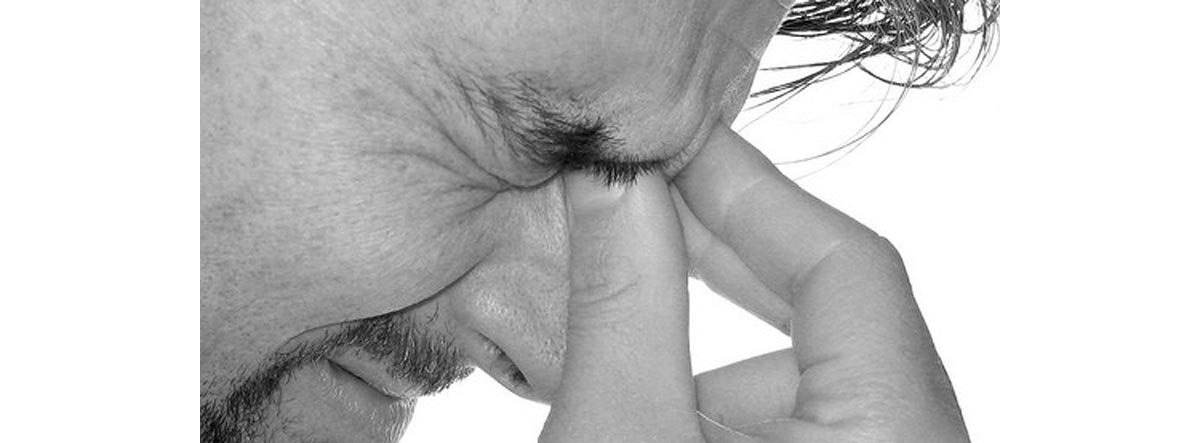Table of Contents
Not everyone who suffers from headaches on a regular basis is at risk for migraine. Tension and cluster headaches have their own special triggers. Here, too, you have access to some strategies to avoid them.

6. Hormonal changes.
Changes in estrogen levels are among the most common triggers for cluster and tension headaches in women. Typically, women have more headaches when their estrogen levels are at their lowest point; right before menstruation, for example, and have fewer headaches when their estrogen levels are highest, as during pregnancy.
Women who use oral contraceptives may reduce the frequency of their headaches by asking their doctors for brands that contain more progesterone — so headache sufferers who aren't planning on getting pregnant could benefit from birth control pills for this reason.
In men, the problem hormone for headache sufferers is more likely to be insulin. Male type 2 diabetics make unusually large amounts of insulin to compensate for insulin resistance. Insulin dilates arteries that take oxygen to the head, causing greater susceptibility to tension and cluster headaches, but not migraine. In fact, some men with long-term histories of migraine stop having headaches when they become diabetic. Diabetic men who have tension and cluster headaches get relief by lowering insulin levels, which always requires eating less.
7. Post-traumatic stress syndrome (PTSD).
PTSD is also a known trigger for cluster and tension headaches (although it is not a significant independent trigger for migraine). The effects PTSD on migraine are greater for male migraine sufferers than for women. Successful treatment of PTSD also reduces the frequency of headaches, so getting started with therapy may offer you physical as well as mental relief.
8. Alcoholic beverages.
Drinking alcohol can trigger headaches (and hangover). Drinking black coffee or other beverages rich in caffeine actually makes the problem worse. The "hair of the dog that bit you," another alcoholic beverage, simply delays the inevitable.
The natural remedy that prevents hangover headaches is poorly publicized. It is borage seed oil. The omega-3 essential fatty acids in borage seed oil may help protect the brain from changes induced by alcohol. Other sources of omega-3 essential fatty acids such as fish oil may be helpful, but have not been clinically tested.
9. Sexual intercourse.
Post-coital headache, or headache after sex, is a relatively common problem, although people who do not have headaches at other times typically do not come down with post-coital headaches. In some men, the problem is made worse by taking medication for erectile dysfunction such as Viagra, Cialis, Levitra, or yohimbine. It may help to keep the bedroom warm, and to avoid temperature changes, such as moving from a cold room to a hot tub. Remember, headaches caused by sexual intercourse happen after sexual intercourse, not before.
10. Sleep apnea.
Chronic headache is a common symptom of sleep apnea, a condition causing periodic cessation of breathing during sleep. Simply treating snoring is not enough. Treating apnea, ensuring the brain gets enough oxygen during sleep, requires a doctor's supervision.
This list of headache triggers is not comprehensive, and putting an end to chronic headaches may require a little detective work. Keep a diary (a sheet of paper kept in a convenient place is probably adequate) of how you feel when you have headaches, and avoid the situations that cause recurrent headache pain.
- Graff-Radford SB, Teruel A. Cluster headache and obstructive sleep apnea: are they related disorders? Curr Pain Headache Rep. 2009 Apr,13(2):160-3. Review.
- Schulman E, McGeeney BE. Current Concepts in Refractory Migraine. Curr Treat Options Neurol. 2012 Nov 13. [Epub ahead of print]
- Photo courtesy of aldoaldoz on Flickr: www.flickr.com/photos/aldoaldoz/2332755401
- Photo courtesy of 19melissa68 on Flickr: www.flickr.com/photos/19melissa68/2476168474


Your thoughts on this